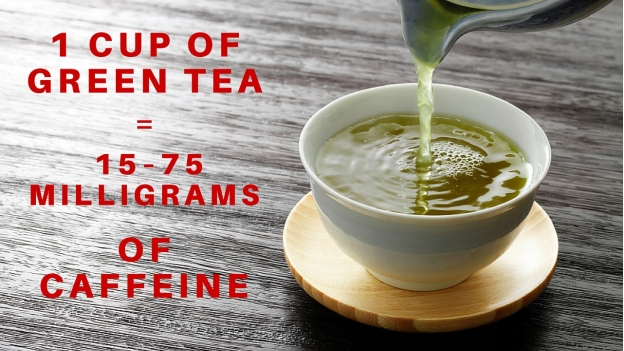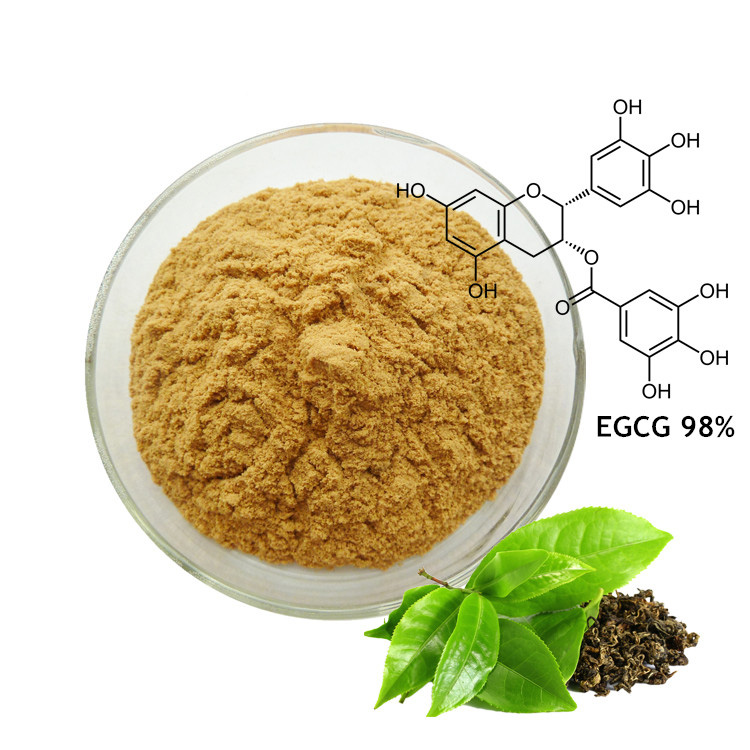Content Menu
● Introduction
● Chemical Composition of Green Tea Extract
● Factors Affecting Caffeine Content in Green Tea Extract
● Standardization and Commercial Products
● Health Implications of Caffeine in Green Tea Extract
● Safety Considerations and Recommended Intake
● Conclusion
● Frequently Asked Questions
Introduction
Green tea extract has emerged as one of the most popular dietary supplements in the modern health and wellness industry. This concentrated form of green tea (Camellia sinensis) contains various bioactive compounds, with caffeine being one of its significant components. Understanding the caffeine content in green tea extract is crucial for consumers, healthcare providers, and researchers, as it directly impacts its physiological effects and potential applications in health promotion and disease prevention. This comprehensive analysis explores the various aspects of caffeine content in green tea extract, including its composition, factors affecting caffeine levels, and implications for human health.

Chemical Composition of Green Tea Extract
Green tea extract is a complex mixture of various bioactive compounds, with polyphenols, particularly catechins, being the predominant constituents. The extract also contains significant amounts of caffeine, amino acids (especially L-theanine), minerals, and other organic compounds. The chemical composition varies depending on several factors, including the processing method, extraction technique, and the part of the tea plant used.
Factors Affecting Caffeine Content in Green Tea Extract
The caffeine content in green tea extract can vary significantly based on multiple factors:
1. Processing Methods: The method used to process green tea leaves and create the extract significantly impacts caffeine concentration. Different extraction techniques can yield varying levels of caffeine and other compounds.
2. Tea Plant Variety: Different varieties of Camellia sinensis contain varying amounts of caffeine naturally. Factors such as growing conditions, soil quality, and climate can influence the caffeine content.
3. Harvest Time: The time of harvest can affect the chemical composition of tea leaves. Young leaves typically contain higher concentrations of both caffeine and catechins compared to mature leaves.
4. Extraction Process: The type of solvent used, extraction temperature, and duration all play crucial roles in determining the final caffeine content of the extract.

Standardization and Commercial Products
Commercial green tea extract products often vary in their caffeine content. Many manufacturers now offer standardized extracts with specific concentrations of both caffeine and catechins. These products typically come in various forms:
1. Capsules and Tablets: These are the most common forms of green tea extract supplements, with carefully controlled caffeine content.
2. Liquid Extracts: These forms often provide more immediate absorption but may have more variable caffeine content.
3. Decaffeinated Options: Some products undergo processes to reduce caffeine content while maintaining other beneficial compounds.

Health Implications of Caffeine in Green Tea Extract
The presence of caffeine in green tea extract contributes to various physiological effects:
1. Metabolic Effects: The combination of caffeine and catechins can influence energy expenditure and fat oxidation.
2. Cognitive Function: Caffeine, along with L-theanine, may enhance mental alertness and cognitive performance.
3. Physical Performance: The caffeine content may contribute to improved athletic performance and endurance.
4. Sleep and Stress: Lower caffeine content in some green tea extracts may help reduce stress while maintaining the benefits of other compounds.
Safety Considerations and Recommended Intake
Understanding the caffeine content in green tea extract is crucial for safe consumption:
1. Daily Limits: Recommendations for safe caffeine intake from all sources, including green tea extract.
2. Individual Sensitivity: Variations in individual responses to caffeine and potential interactions with medications.
3. Timing of Consumption: Considerations for when to take green tea extract based on its caffeine content.
4. Special Populations: Specific recommendations for pregnant women, elderly individuals, and those with certain health conditions.

Conclusion
The caffeine content in green tea extract is a complex subject influenced by numerous factors. Understanding these variables is crucial for both consumers and healthcare providers. While caffeine contributes to many of the extract's beneficial effects, its content should be carefully considered when choosing and using green tea extract supplements.
Frequently Asked Questions
Q: How does the caffeine content in green tea extract compare to regular brewed green tea?
A: Green tea extract typically contains more concentrated levels of caffeine compared to brewed green tea, with specific amounts varying by product and processing method.
Q: Can green tea extract cause sleep problems due to its caffeine content?
A: Yes, particularly when taken later in the day or in high doses, though individual sensitivity varies.
Q: Are there decaffeinated green tea extract options available?
A: Yes, many manufacturers offer decaffeinated versions that maintain other beneficial compounds while reducing caffeine content.
Q: How does the body absorb caffeine from green tea extract compared to other sources?
A: The presence of other compounds in green tea extract can affect caffeine absorption and metabolism, potentially resulting in different effects compared to other caffeine sources.
Q: What is the recommended daily intake of green tea extract considering its caffeine content?
A: Recommendations vary based on the specific product and individual factors, but generally, following manufacturer guidelines and consulting healthcare providers is advised.































